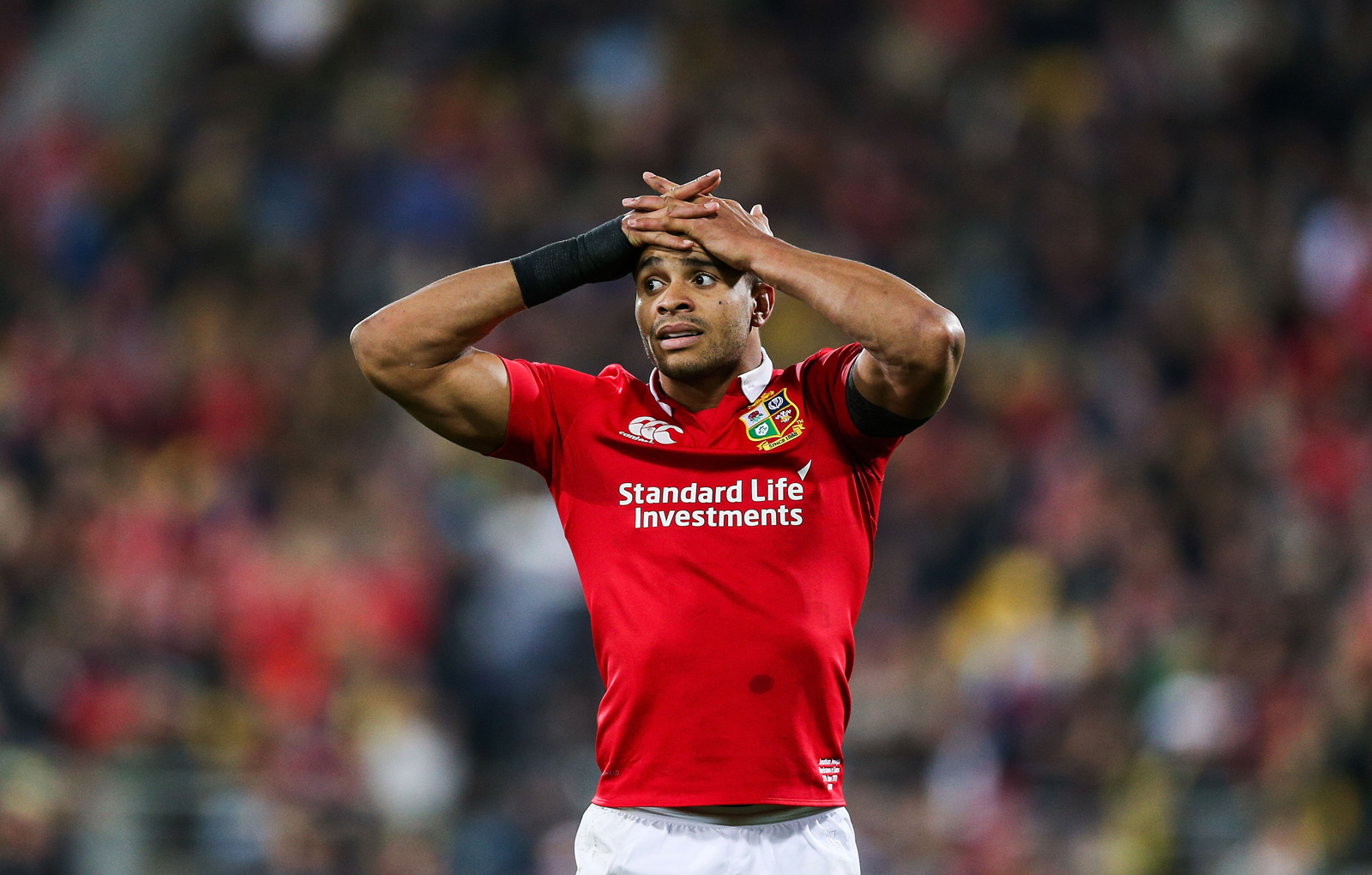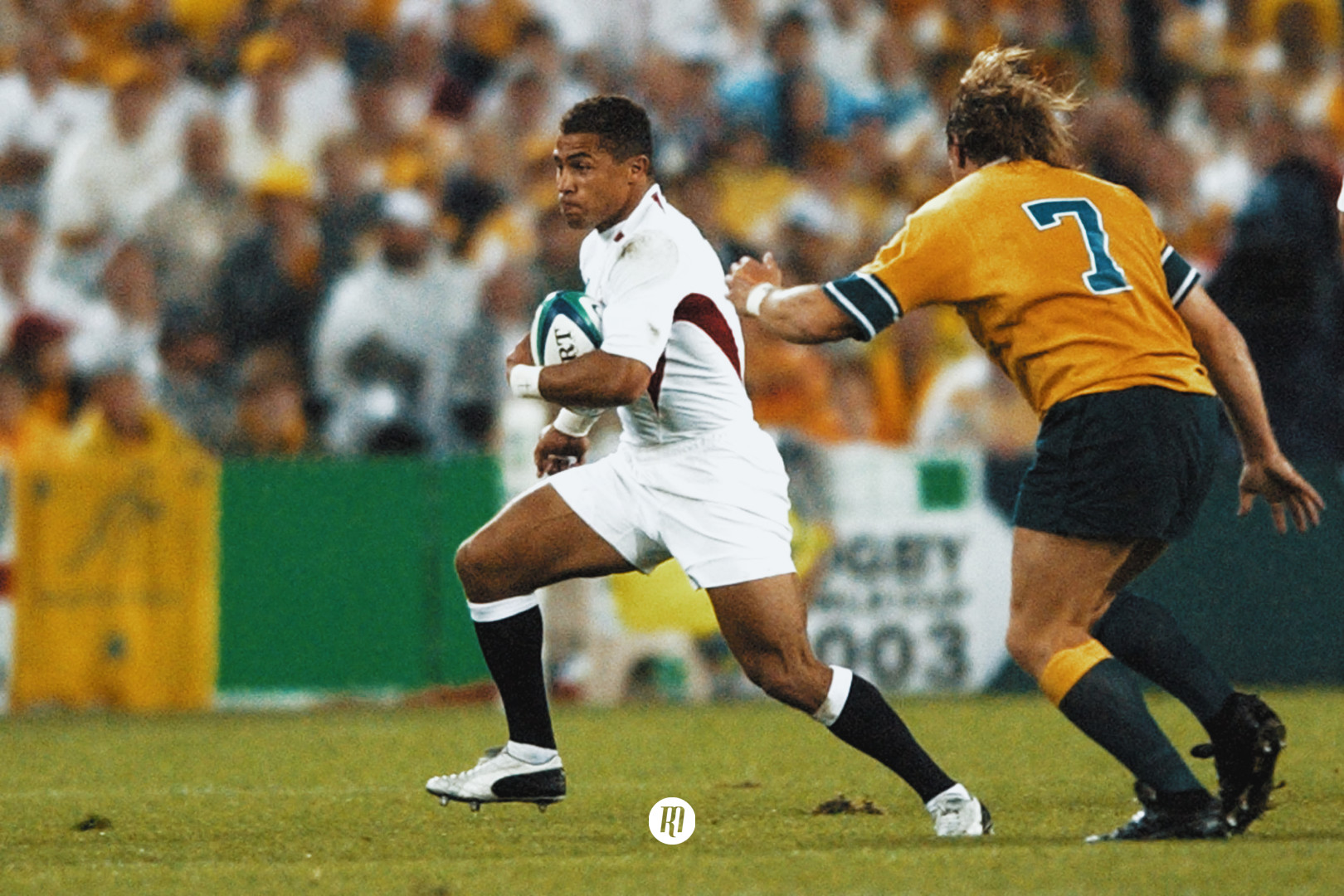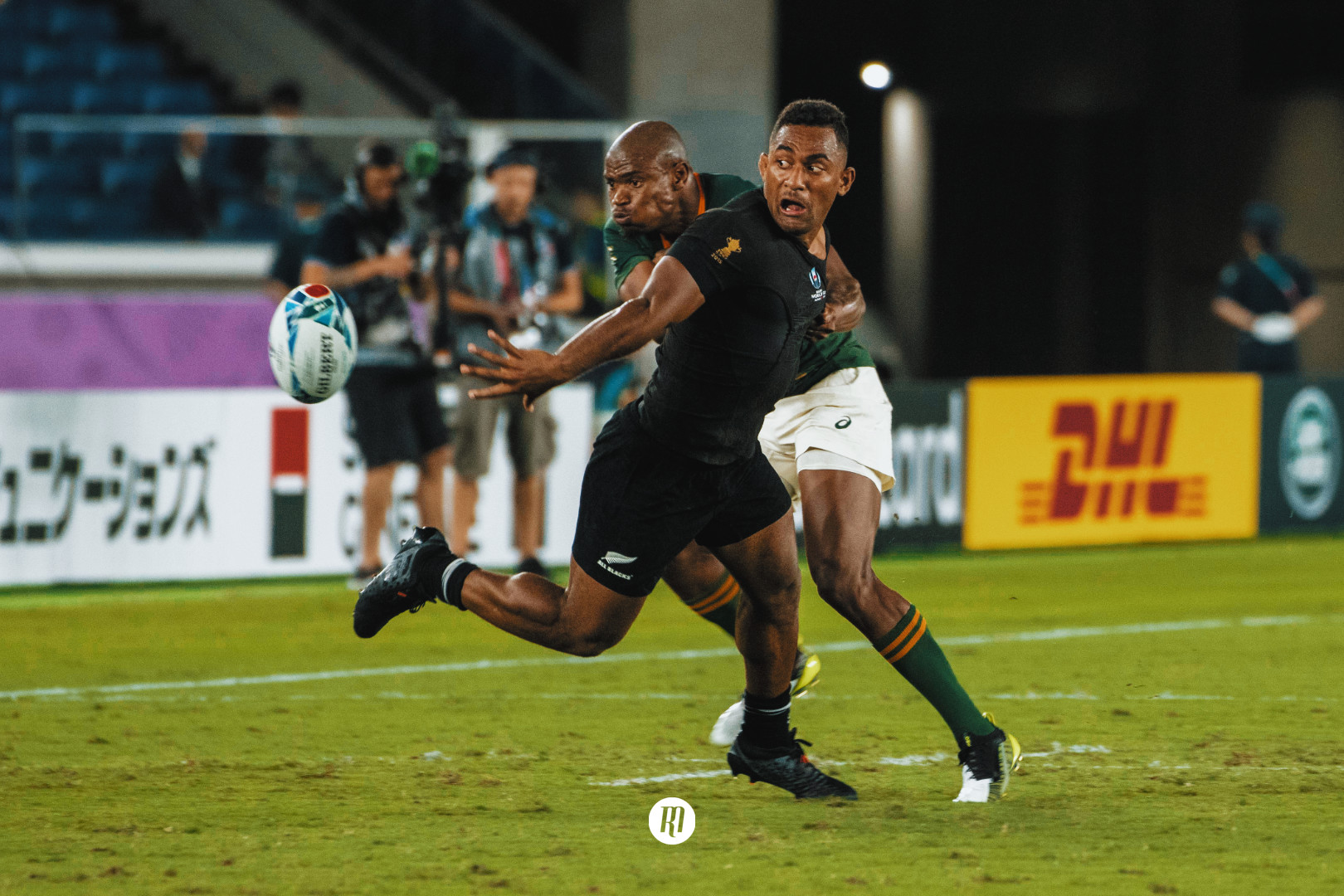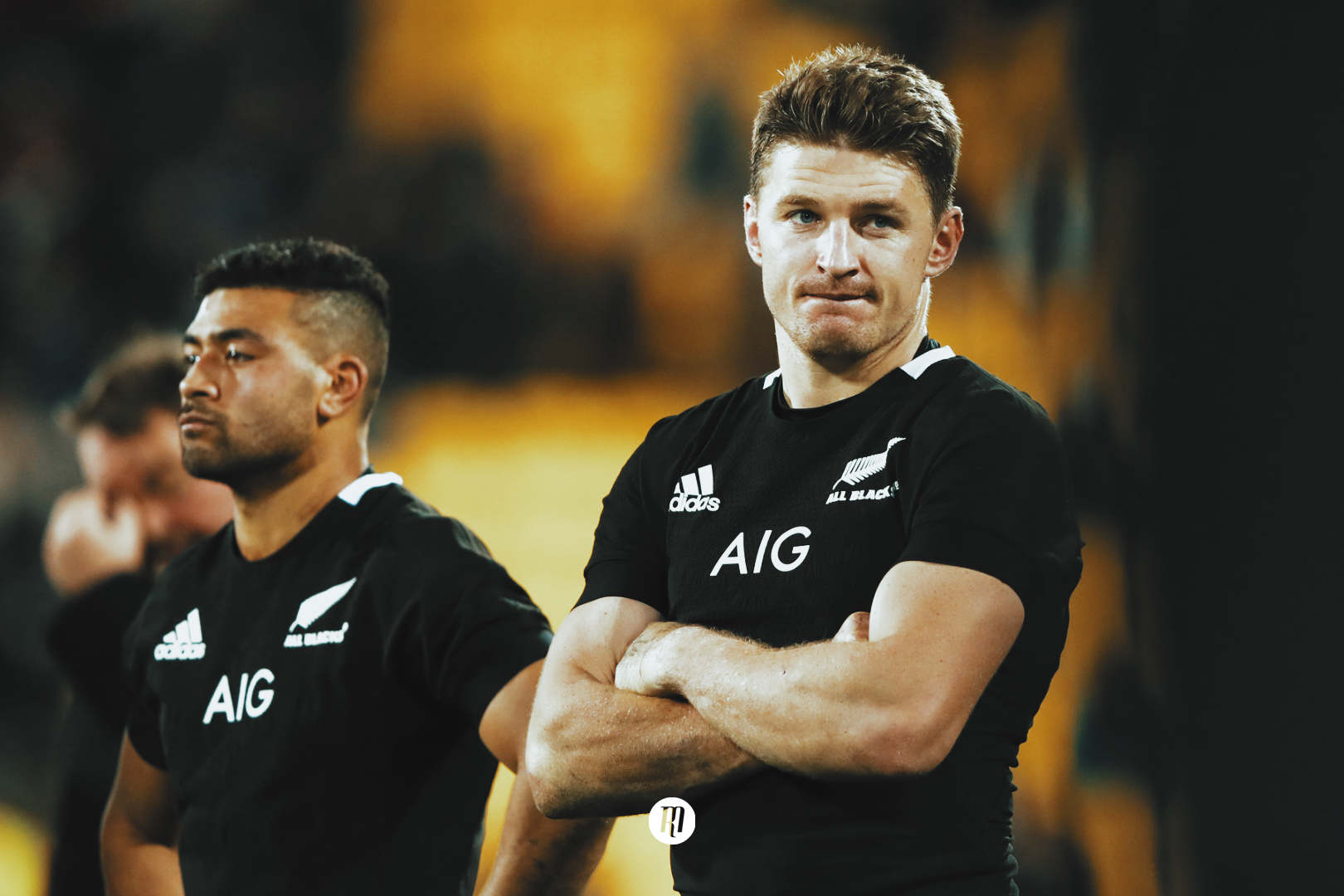Match Analysis: All Blacks v Lions - Second Test
At times it looked like the Lions had confounded their progress in this fixture with ill discipline, but they stayed strong to the last, securing an incredible victory that brings the test series level.
After all the build up games and the result in the first test, the 2017 Lions tour hung on a knife edge going into the second test; a loss for the Lions and they would be left playing for pride in the final week; a win, and the Lions would throw the series wide open.
The first test saw the All Blacks in the ascendancy upfront, largely beating the Lions with the game we had anticipated they would play themselves. There would be hope that the drizzly Wellington weather would stifle the quick tempo and offload game that New Zealand worked so well, and rebalance the game slightly into the Lions’ favour.
If there is a time in which the All Blacks struggle, it’s when a team takes the game to them; Ireland in Chicago; Australia’s Rugby Championship success in 2015. Both sides challenged New Zealand in the contact area and at the breakdown, disrupting their quick ball and taking the stride out of their high tempo game.
And it was clear given the Lions’ selection that Warren Gatland was planning on doing exactly that, and furthermore he had chosen an exciting back line who could score tries.
However, despite the ascendancy of New Zealand in the first test, the Lions didn’t play badly, and this is largely reflected in the consistency of selection, with Maro Itoje coming in for his club partner George Kruis and Same Warburton in for Peter O’Mahony. In the backs, Owen Farrell starts the game at 12 in place of Ben Te’o who certainly won the battle against Sonny Bill Williams in the first test; this is most likely a game management choice, as having both Sexton and Farrell on the field would likely be with a view to winning the kicking game, pinning the All Blacks back in their own half and not allow them gain the high level of territory they did in the first test.
On the other side, there were only two changes in the All Blacks line up, both forced through injury; Anton Lienert-Brown came in for the injured Ryan Crotty, and Waisake Naholo came into the side on the wing, pushing Israel Dagg to fullback to cover the injured Ben Smith. Importantly, there were no changes in the pack.
This was another game though where history was against the Lions; New Zealand had registered 16 straight wins in Wellington, and the 2005 series was put to bed here after an exemplary performance from Dan Carter.
The scene was set for a match that promised greatness, and delivered it in spades.
Discipline
Once the game had kicked off, it was clear that the Lions wanted to play a high tempo game in the forwards; something that had worked well for them to date on this tour. They went one step further though, and avoided being one-dimensional by swinging the ball wide at times, or shifting the point of contact in the forwards. The advances they have made in attacking prowess over the course of the tour were certainly evident as the fixture began to unfold.
In defence, the Lions continued to work well, and while their line speed has been a key area for them through the build up games, it was clear they were putting a lot of effort into disrupting the breakdown, ensuring New Zealand struggled to get clean ball.
They confounded all of this effort with a lack of composure though; Jonny Sexton kicking the ball from deep over the dead ball line; Conor Murray kicking the ball out on the full; Mako Vunipola conceding a penalty for competing illegally at the breakdown right in front of the posts. The mistakes were building up, and in a game of this magnitude where the finest of margins can make the difference, the Lions were not helping themselves.
The biggest turning point of the half though came on the 24 minute mark.
After the Lions had fielded a kick, the ball found its way to Anthony Watson, who while being tackled to the ground by two other New Zealand players, was tackled further by Sonny Bill Williams. A pulse echoed through the stadium at the perceived high tackle, and Jérôme Garcès went upstairs to check.
Reviewing the footage, it appeared to be a shoulder charge to Watson’s head, and the referees committee that had formed on the field judged the offence to be worthy of a heavy punishment.
Walking back towards the All Blacks with card in hand, Garcès was ready to inflict punishment; Sonny Bill Williams became the first All Black to be sent off since Colin Meads at Murrayfield in 1967.
Despite the numerical advantage however, the Lions went in at half time with the scores tied, thanks to a Farrell penalty that closed the half. One would feel at this stage though, that playing against 14 men, the odds had shifted into the Lions’ favour.
One should never underestimate the All Blacks though.
Collision Dominance
The second half opened with New Zealand in the ascendancy in both possession and territory, and it looked like the dismissal of Sonny Bill Williams had barely affected them. They had upped the tempo of their game and returned to the quick picks and offloads that had served them so well in the first test.
Ngani Laumape coming off the bench made a big difference, running with strength through the narrow channel and getting over the gain line. In the first test, the ability of Sonny Bill Williams made a big difference to the All Blacks, though they had the ascendancy in this area across the board.
In this fixture, it was clear that the Lions had improved, winning in the contact area and driving New Zealand back in the tackle well. Their defence was strong, and as a result of their gain in ascendancy in this area, the All Blacks never really looked like scoring a try.
The Lions’ discipline continued to let them down however, and if Beauden Barrett had continued his exemplary kicking performance from the first test, New Zealand might well have found themselves out of sight. Indeed a slightly different angle on a kick through from Barrett to Kieran Read would have resulted in a try and an almost certain conversion that would have taken the score to 19 points to 9, and the balance of momentum perhaps irrevocably into New Zealand’s favour.
By 55 minutes, Barrett had managed to extend the lead with his boot to 18-9 after Mako Vunipola had found his way into the sin-bin with some illegal rucking, but they still didn’t have such a hold on the game that they could control its flow. Had they, and one might feel that New Zealand could have tied the series up there and then.
The Lions were never out of this game though.
When the game passed through the hour mark, the Lions had their first meaningful bit of possession in the All Black half. From a line out on halfway, the Lions spread the ball expertly through the hands, drawing the men and working space on the outside for Anthony Watson who set off hard for the corner. From the breakdown, the ball came back left, and through Liam Williams, found its way to Taulupe Faletau on the wing. A little shimmy and he set off, steam rolling over Israel Dagg before sliding over in the corner.
All of a sudden, there was hope for the Lions.
At this point in the half, the Lions had managed to capitalise on their only significant venture into opposition territory, but the game remained largely camped in their own half, and another lack of discipline conceded a penalty that Beauden Barrett knocked over to extend the All Black lead once more.
Credit must go to the belief of the Lions though, they kept working incredibly hard. Indeed as the game passed through the 68th minute mark, they returned to the tight high tempo game that had worked so well for them over the course of this tour; Conor Murray played a far more attacking game in this fixture and it made a difference.
A great line from Jamie George broke through the New Zealand defence and the ball was recycled quickly. From there, Murray picked up and made a snipe at the space on the fringe. Hauling two players with him, he made it over the line. Owen Farrell converted and the score was level.
And so began one of the most exciting final ten minutes of a rugby match.
The ball is spread wide to Elliott Daly who pokes it through; Williams is taken out off the ball, penalty for the Lions, they go for touch. They are building well through the middle of the field, but the whistle has gone for crossing.
New Zealand come back strong, but they meet a brick wall of defence, tackle after tackle from the Lions driving the All Blacks back.
And then the game changer.
A pass from Murray to Kyle Sinkler is too high and he jumps to catch it; Charlie Faumuina mistimes his tackle and Sinkler crashes to the floor. The whistle is blown, tackle in the air, penalty Lions.
Up steps Owen Farrell…
The noise from the Lions fans was immense; with minutes to go, the Lions were ahead by 24 points to 21.
The final minutes of the game consisted of hasty attacks from New Zealand, desperately trying to turn the game around. When the Lions cleared from their own 22, the ball rolled deep into the All Blacks 22; a quick line out from Rieko Ioane found Beauden Barrett who set off across the field, but the defence was upon him. He tried a chip over the top to get past the first line of defence, but the ball landed into hands that grasped it obstinately to its owners red jersey.
When the buzzer went, Conor Murray gladly brought proceedings to an end, and in so doing finalised what will go down as one of the great Lions’ victories.
Over the course of the game though, the Lions gave away 13 penalties, 10 kickable, and a yellow card; not figures usually found on a winning side, but they scored two tries to nil, and on balance, they deserved this win; their passes stuck, they were clinical, they won in the collision area, and they disrupted the All Black breakdown.
While there were plenty of positives in this game though, they will need to improve their discipline in order to win the series; the All Blacks won’t be so forgiving again.
And so, we’re back to deuce, and the series goes down to the wire.

Filed under:
British & Irish Lions, Match Analysis
Written by: Edward Kerr
Follow: @edwardrkerr · @therugbymag




